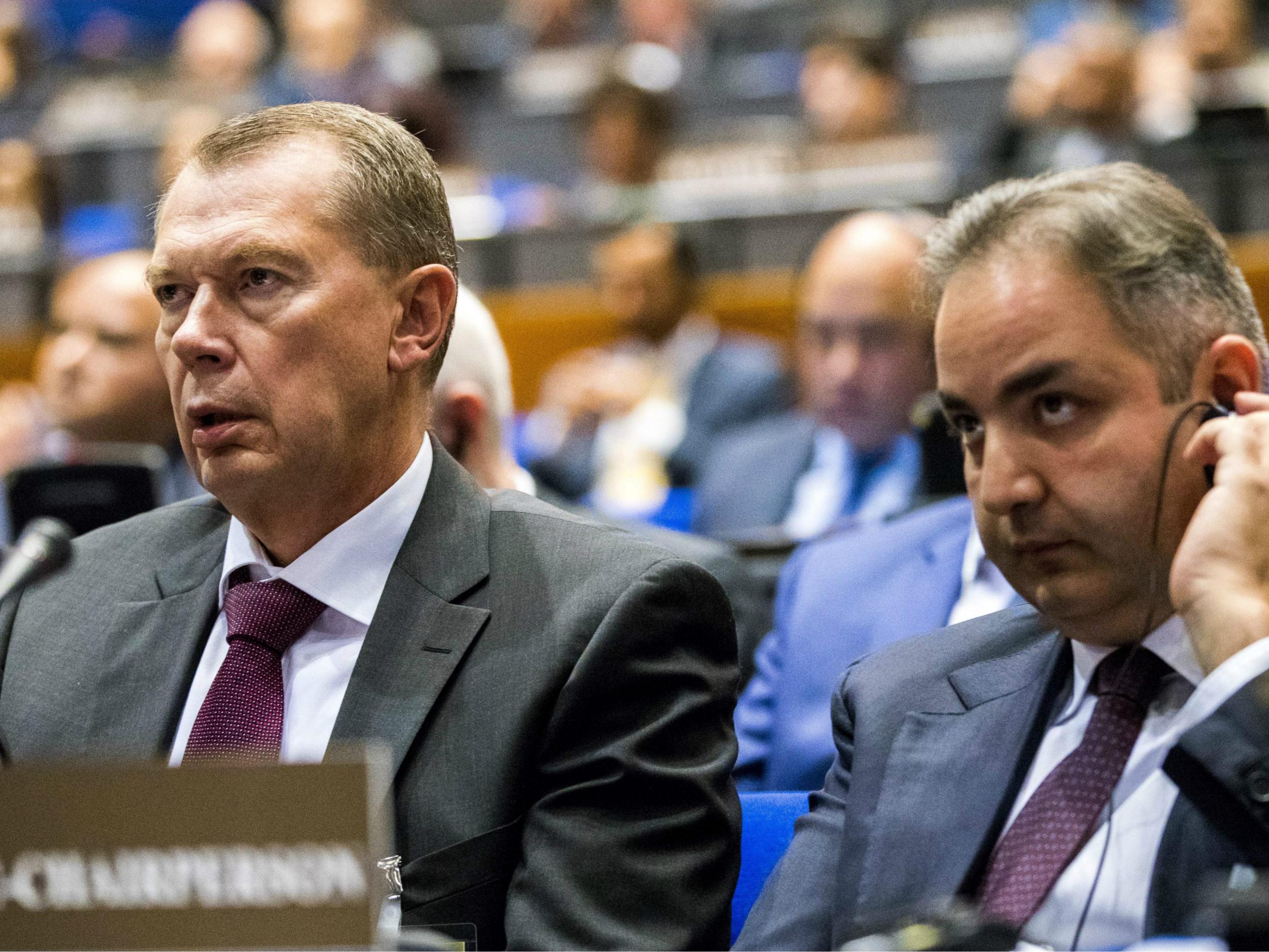Russia calls chemical weapons watchdog group the 'Titanic’ after powers expanded to assign blame for illegal attacks
The UK lobbied for expanding the powers of the OPCW to assign blame, not just identify illegal chemicals attacks

Russia compared the chemical weapons watchdog group to a sinking ship after members voted to allow the group to assign blame for the Salisbury poisoning and attacks in Syria.
A UK-led vote to allow the Organisation for the Prohibition of Chemical Weapons (OPCW) to go beyond just determining if a banned chemical weapon was used and actually assign blame for an attack to a specific party, passed by 82-24.
Moscow’s Industry Minister Georgy Kalamonov, compared the group, based in The Hague, to “the Titanic, which got a hole and began to sink” following the vote and questioned how long it would last after its expansion of powers.
“A lot of the countries that voted against the measure are starting to think about how the organisation will exist and function in the future,” Mr Kalamonov commented, adding that any expansion of the OPCW undermined the power of the United Nations Security Council, the only appropriate place to discuss matters of apportioning blame.
The UK called for a vote to expand the powers of the group after a bitter row with Russia following the 4 March poisoning of former Russian spy Sergei Skripal, and his daughter Yulia in Salisbury, UK as well as reported chemical attacks using chlorine gas in Syria
The Skirpals and a local police officer had been left in critical condition following the use of a military grade, novichok nerve agent.

Peter Wilson, the UK representative to OPCW, said it had 30 cosponsors, and that the support will allow the Nobel Prize-winning weapons watchdog “not just to say when chemical weapons are used, but by whom”.
Foreign Secretary Boris Johnson also travelled to headquarters to call for the vote and his office said in a statement after the victorious vote that the vote “fills a crucial gap left when the United Nations Security Council was prevented from renewing its own investigation,” the statement said.
The Security Council established a joint UN-OPCW investigative team to determine responsibility for chemical attacks in Syria. But, Russia vetoed a Western-backed resolution in November 2017 that would have renewed the joint team’s mandate.
In April 2018, it also asked the OPCW if it could be involved in the Salisbury investigation. The watchdog group rejected the request in a vote and at the time UK Ambassador to the UN Karen Pierce said: “Allowing Russian scientists into an investigation when they are the most likely perpetrators of the crime in Salisbury would be like Scotland Yard inviting in Professor Moriarty, so I don’t think that’s a tenable way forward”.
UK Prime Minister Theresa May had been quick and unwavering in her assessment of Russia’s role in using the nerve agent in the Salisbury incident which had left it a “ghost town,” as The Independent previously reported.
She called it a “brazen” act, expelled 23 Russian diplomats, and cut high-level contact with Moscow.
“We consider this hostile action as totally unacceptable, unjustified and shortsighted,” the Russian Embassy to the UK said in a statement, which denied any claims of an attempted assassination of the Skirpals, adding that “all the responsibility for the deterioration of the Russia-UK relationship lies with the current political leadership of Britain”.
Russia, in turn, expelled British diplomats from posts in Russia.
Mr Johnson’s office said the OPCW “will immediately start work to help identify those responsible for chemical attacks in Syria”.
Join our commenting forum
Join thought-provoking conversations, follow other Independent readers and see their replies
Comments
Bookmark popover
Removed from bookmarks